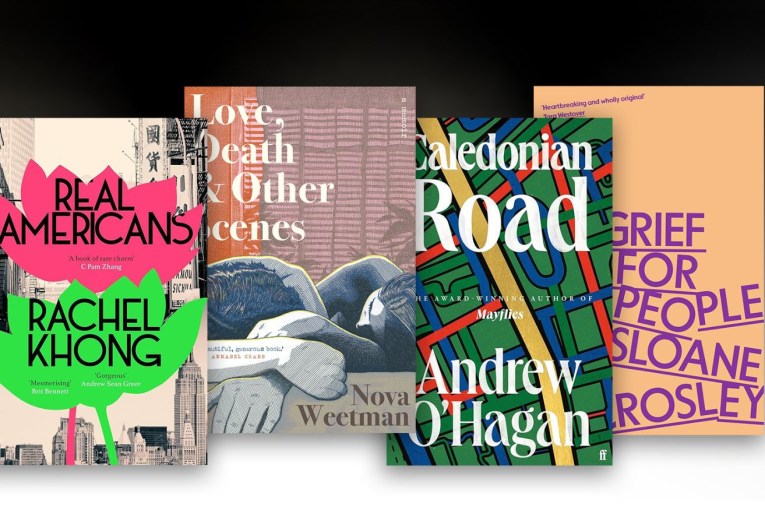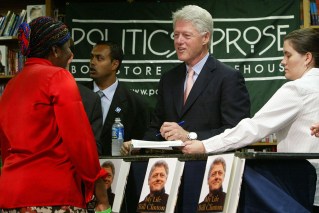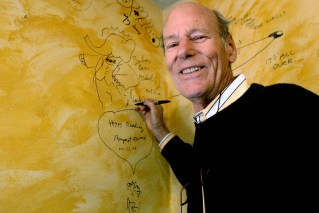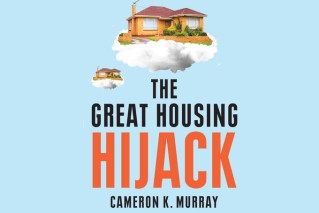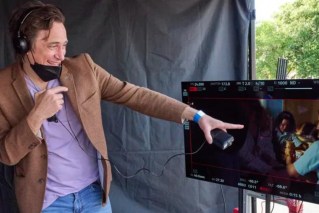Extract: Whitlam’s revolutionary first days in power
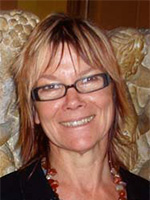
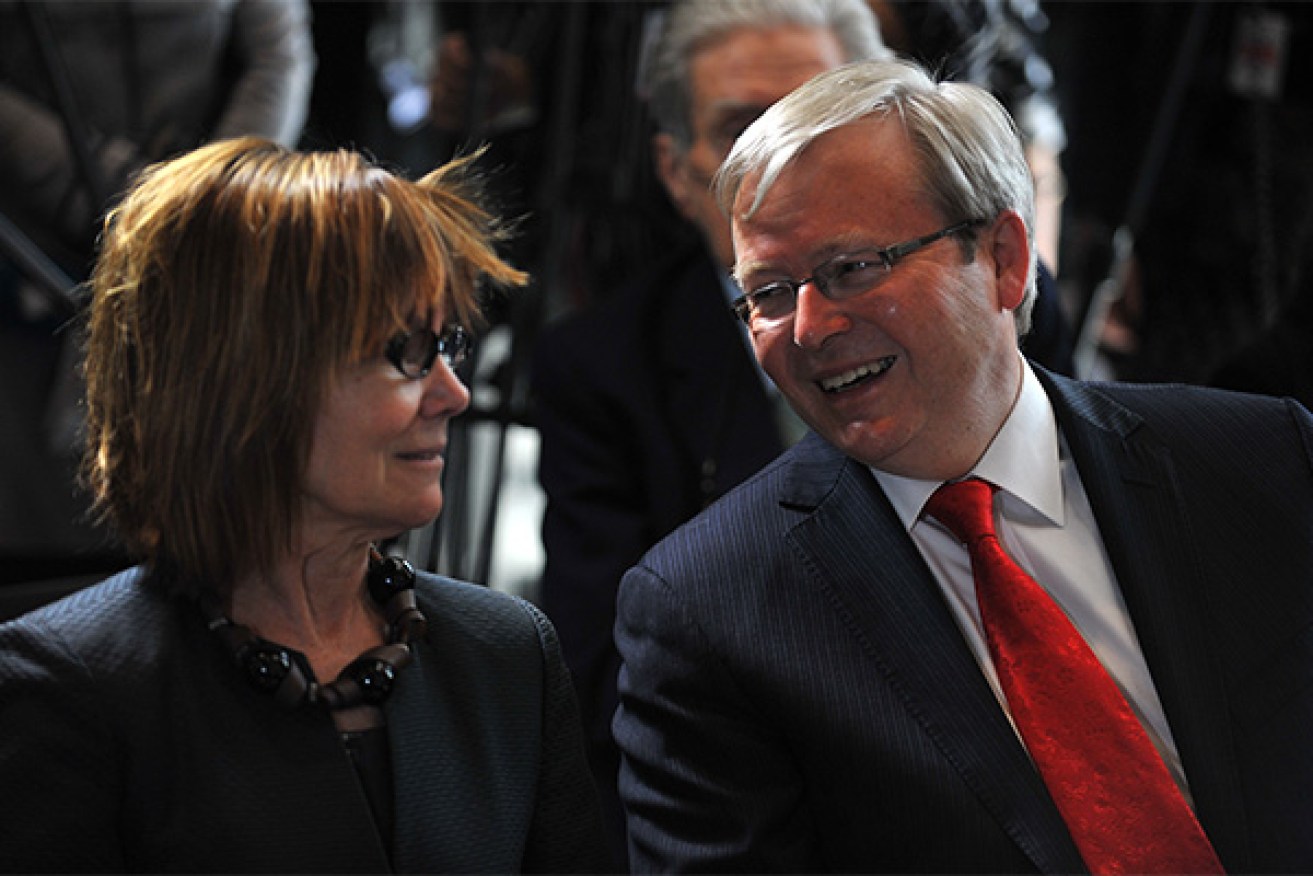
Author Jenny Hocking and former Prime Minister Kevin Rudd at the Gough Whitlam: his Time launch in 2012. Photo: AAP
When Sir Billy McMahon announced his intention to call on the Governor-General, Sir Paul Hasluck, on Tuesday 5 December, 1972, (three days after the election of Whitlam) and hand in his commission as Prime Minister, he still fully anticipated remaining in office as caretaker prime minister at least until Thursday, if not until the Labor caucus met in ten days’ time.
Such was the Coalition’s unpreparedness for Whitlam’s immediate assumption of office that McMahon was left to inform his startled former Deputy Prime Minister, the leader of the Country Party, Doug Anthony, of Whitlam’s immediate ascendancy in an impromptu meeting by the side of the road near the Hotel Canberra, where Anthony had been ‘flagged down’ by McMahon heading for Yarralumla.
Whitlam arrived for his own meeting with Hasluck soon after and accepted the Governor-General’s invitation to form government. Negotiations became extended for some time as Whitlam put to the Governor-General his proposal for the formation of an interim ministry of two, its structure and powers and the means for it then to become the full ministry. Whitlam rejected outright any suggestion from Hasluck that the incoming government’s policies could equally be implemented by the outgoing McMahon government in caretaker mode—these historic changes in Australia’s domestic and international stances would never be taken under the names of McMahon and his conservative ministers. That those who had opposed those same policies at every turn might now take credit for them was unthinkable: “It would be more effective to have these decisions made by an interim government which sympathised with them rather than by an interim government which had opposed them”, Whitlam explained later that day.
· Former PM Gough Whitlam dies, aged 98
· Gough Whitlam’s life and career in pictures
Together these two very different yet mutually respectful men negotiated the form of Whitlam’s historic first government. Observing Whitlam closely during these days of crucial talks, Hasluck found the extent to which Whitlam had foreseen every possible contingency quite remarkable.
It became apparent that some weeks before polling day he had worked out in his own mind the expedient of having an interim government of two Ministers instead of asking the McMahon Government to continue as a caretaker government and that he had planned the sequence of immediate action to be taken.
As Whitlam left Yarralumla having accepted the Governor-General’s invitation to form a government, he was still to be formally commissioned as Australia’s twenty-first Prime Minister, but already the signs of change were everywhere. The black Bentley long favoured by prime ministers was gone, replaced by the Ford Galaxie Whitlam had been using as Leader of the Opposition and soon to be replaced by a white Mercedes. Gone too was the Australian flag flying from the bonnet, as would be the prime ministerial sobriquet ‘the Right Honourable’, for Whitlam had been offered and had rejected the traditional prime ministerial honour, bestowed by the Queen on the recommendation of the British Prime Minister, of membership of the Privy Council. Describing it as a ‘meaningless and anachronistic hangover from Victorian times’, Whitlam said that no Australian prime minister should be ‘beholden’ to his British counterpart. And, for the first time in two years, the Lodge would once again become the Prime Minister’s family residence as Whitlam announced that he and Margaret would live there permanently and not just, as McMahon had done, when parliament was sitting.
When the Whitlams moved into the Lodge the next week, it was immediately as a family home. They took the bedrooms the Gortons had used, replacing the twin beds with a double bed from the McMahon and Holt suite and their first guests were Lance Barnard and Frank Crean for lunch the next day. Margaret did some Christmas shopping, waiting for their daughter Catherine to arrive for the weekend. “I’m loving it!” she told her readers in her new weekly column in the women’s magazine Woman’s Day. “Tonight the P.M. (how great) and I had a walk after dinner; it was cool, leafy and lovely after the heat of the day.” Margaret had been approached to write the column soon after the election; its conversational, informal style mirrored Eleanor Roosevelt’s daily newspaper column of the same title. Within months Margaret had brought a less formal, more open, atmosphere to the Lodge. She quietly arranged for the butler, employed for the first time by McMahon, to be moved on to Yarralumla and tried, even with the most high-powered gatherings, to keep them as informal as possible: “They leavened their entertaining with dinners for a cross-section of people from all walks of life, hoping to encourage Australians to see the Lodge as belonging to the people”.
At a press conference that followed Whitlam’s talks with the Governor-General, Whitlam made the central purpose of the formation of a duumvirate quite clear. Its purpose could be put in a single word—action—and its guiding force would be the mandate. The duumvirate existed to begin the process of implementing the program and in doing so its priorities were Whitlam’s own: “There are certain things which I believe must be put in hand by the incoming government … One example is action on abolishing conscription. Another is the reference to the Tariff Board covering colour television. A third is an application to the Commonwealth Conciliation and Arbitration Commission to reopen the Equal Pay Case so that the new government can support the claim. There are several other matters, including votes in the United Nations General Assembly. Each of these is urgent.”
At 3.30 p.m. on 5 December 1975, Whitlam returned to Yarralumla with Lance Barnard and was sworn in by Sir Paul Hasluck as Prime Minister and as Minister for Foreign Affairs, External Territories, Treasurer, Attorney-General, Customs and Excise, Trade and Industry, Education and Science, Shipping and Transport, Civil Aviation, Housing, Works and Environment, Aborigines and the Arts.
Barnard, as Deputy Prime Minister, took charge of fourteen minis- tries: defence, navy, army, air, supply, postmaster-general, labour and national service, immigration, social services, repatriation, health, primary industry, national development and the interior.
This first Whitlam ministry was to be an interim ministry in three respects: it would exist only until the full ministry had been elected—‘I have given His Excellency an assurance on this point’; it could take action only on matters not requiring the passage of legislation; and finally, in deference to the mandate, it would take action only on matters clearly set out in the party’s 1972 policy speech. In this way the duumvirate was simply beginning the process central to the entire Whitlam government, to give substance to the ‘three great aims’ of the program: ‘to promote equality; to involve the people of Australia in the decision-making processes of our land; and to liberate the talents and uplift the horizons of the Australian people’.

Author Jenny Hocking and former Prime Minister Kevin Rudd at the Gough Whitlam: His Time launch in 2012. Photo: AAP
Gough Whitlam: His Time is the second volume of the former Labor Prime Minister’s biography from Jenny Hocking.
Purchase a copy from Melbourne University Press here.
Jenny Hocking is Head of the School of Journalism, Australian Indigenous Studies at Monash University. She is the author of two major political biographies, Lionel Murphy: A Political Biography, shortlisted in the South Australian Festival Awards for Literature: National Non-Fiction Awards, and Frank Hardy: Politics Literature Life, shortlisted in the NSW Premier’s History Awards. Jenny has also written extensively on counter-terrorism and democracy, most recently in Terror Laws: ASIO, Counter-terrorism and the Threat to Democracy.
